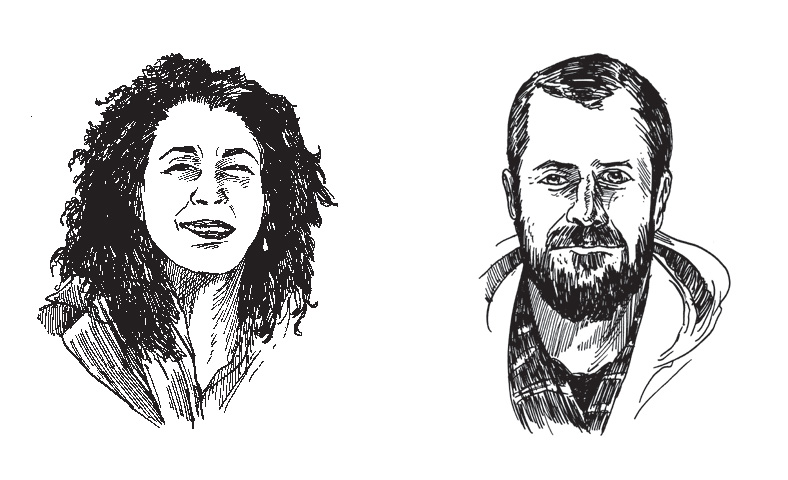For nearly twenty years, filmmakers Ilisa Barbash and Lucien Castaing-Taylor have sought to depict, as honestly as possible, the beauty and ache of actual lived experience. In their new film, Sweetgrass, the Cambridge, Massachusetts–based couple examine the world of raising sheep and sheepherding in the Absaroka-Beartooth Mountains, in south-central Montana. This pointedly unsentimental and often startlingly intimate film provides, without commentary, an everyday view of life on a ranch and up in the mountains where three thousand sheep are being driven to feed—for the last time. Sheepherding is relentlessly grueling work, and the film, simply by getting out of the way, allows for viewers to experience this hard labor firsthand. Sweetgrass was an official selection at the 2009 New York and Berlin film festivals and opened theatrically at the Film Forum in New York City this January. Barbash and Castaing-Taylor met in film school at USC in the late 1980s. Barbash is a curator of visual anthropology at Harvard University’s Peabody Museum, and Castaing-Taylor is director of Harvard’s new Sensory Ethnography Lab, and a professor of Visual & Environmental Studies and of Anthropology. Their latest book is The Cinema of Robert Gardner (Berg, 2008), a comprehensive look at the man many consider the father of ethnographic filmmaking. One of Barbash and Castaing-Taylor’s previous films, In and Out of Africa, a provocative take on the African art trade shot in the Ivory Coast and New York, raised important questions about what it means to be authentically “African,” and who decides. Barbash grew up in New York City; Castaing-Taylor in Liverpool, UK. The interview was conducted over email and the phone in December 2009.
—Peter Orner
THE BELIEVER: What I especially appreciate about Sweetgrass is that, like the best literature, it refrains from overexplaining. The film opens and we immediately descend into this world of sheep and sheepherding. But why sheep? How did you get started with this project?
ILISA BARBASH: We were teaching at the University of Colorado at Boulder, in film and anthropology, and looking for local topics. When we found out that a Montana rancher was the last in the county to be driving his sheep up into the mountains, we thought it might make a great film topic. It was close enough to be feasible, in a beautiful area, and involved some drama. We also loved the fact that it was the last of something. It’s a hackneyed and by now totally discredited trope of ethnographic filmmakers to film cultures on the wane, or in their death throes— it’s called salvage ethnography. I don’t mean to sound callous about the tragedy of these disappearing life ways,...
You have reached your article limit
Sign up for a digital subscription and continue reading all new issues, plus our entire archives, for just $1.50/month.
Already a subscriber? Sign in





